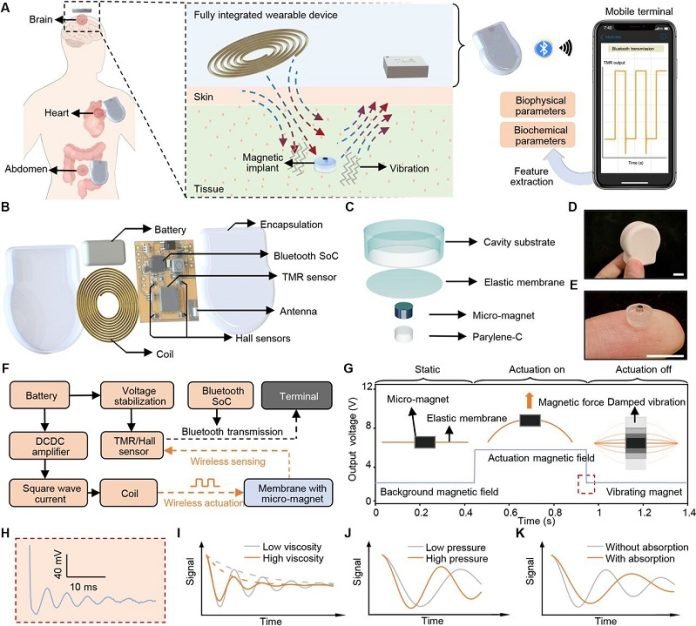
Researchers at Peking University have made a big leap forward in how we might keep an eye on our health in the future.
They’ve created a super small implantable sensor that works with a wearable device to track your health without any wires poking through your skin, without any chips inside your body, and without having to carry around heavy equipment.
This new technology, shared in the journal Science Advances, means less risk of infection, better comfort, and easier use.
The brain behind this innovation, Han Mengdi, and their team believe these tiny magnetic sensors could change the game in health monitoring.
Imagine having a small magnet placed inside your body that can tell you, in real time, all sorts of things about how your body is doing.
This isn’t just about checking if you’re sick or not; it’s about understanding your health on a whole new level.
The team tested this tech in rats and found it could accurately measure important health stats like the thickness of the fluid protecting the brain, the pressure inside the skull, and even blood sugar levels.
This means it has the potential to keep an eye on many health conditions, all without any wires.
Wan Ji and Nie Zhongyi, who are also on the research team, explained how versatile this tiny system is.
It can be used to check a wide range of health indicators, not just in the brain but all over the body.
This could include monitoring heart health, the strength of dental and bone structures, stomach pressure, and even tracking specific molecules and cells in different parts of the body.
This could be a big deal for diagnosing and managing lots of different health issues, both big and small.
The secret to how this works is in the tiny, simple magnetic implants and the special wearable device that goes with them.
The wearable device makes the implant vibrate very slightly, and then it can tell what’s happening in your body by how those vibrations change.
This can give doctors a clear picture of your health without needing to make any incisions or attach any external devices.
Despite how promising this technology is, there are still some hurdles to overcome, like making sure these implants stay safe and work well over a long time.
Han Mengdi is hopeful, though, that with more research and development, these issues will be solved.
This tiny magnetic implant technology could really change the landscape of medical care, making it easier for everyone to keep track of their health in a much more detailed and less invasive way.
It’s a big step towards making personalized, high-tech health monitoring a part of everyday life.



